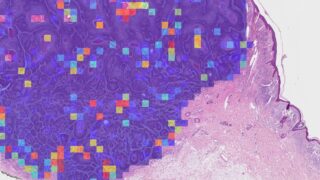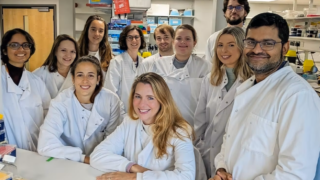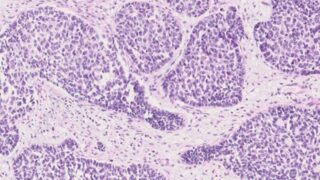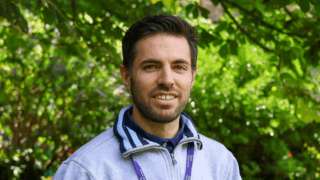Tag: Computer models
Search News
Categories
Archives
Blood test helps guide immunotherapy for bladder cancer
22nd October 2025
A new clinical trial led by Professor Thomas Powles at Barts Cancer Institute, Queen Mary University of London, has shown that a blood test to detect tumour DNA could help doctors decide which patients with bladder cancer are most likely to benefit from further treatment after surgery. The new approach improved survival in those identified as high-risk while safely sparing low-risk patients from unnecessary side effects.
Read moreNew AI model sheds light on high-risk skin cancer: Q&A with the authors
30th September 2025
Researchers have developed an artificial intelligence (AI) tool that could help doctors identify which skin cancers are most likely to spread. We spoke to Professor Jun (Alex) Wang, a group leader at BCI, and Dr Emilia Peleva, a Clinical Research Fellow and dermatologist in his team, about their new study, published in npj Precision Oncology.
Read moreRogue’ DNA rings reveal earliest clues to deadly brain cancer’s growth
8th September 2025
An international team of scientists has revealed how rogue rings of DNA that float outside of our chromosomes – known as extrachromosomal DNA, or ecDNA – can drive the growth of a large proportion of glioblastomas, the most common and aggressive adult brain cancer. The discovery could open the door to much-needed new approaches to diagnose glioblastoma early, track its progress and treat it more effectively.
Read moreProfessor Sarah McClelland awarded £1.5m from CRUK to study cancer’s chromosomal chaos
25th November 2024
Congratulations to Professor Sarah McClelland, who has received a £1,500,000 Programme Foundation Award from Cancer Research UK (CRUK), to support her lab’s work at Barts Cancer Institute (BCI), Queen Mary University of London.
Read moreInternational study reveals four distinct types of oesophageal cancer
23rd October 2024
New research reveals that the most common type of oesophageal cancer, oesophageal squamous cell carcinoma (ESCC), is composed of four distinct subtypes—each of which may benefit from different treatment approaches.
Read moreIntroducing: Dr Oscar Maiques
20th June 2024
Welcome to our newest group leader, Dr Oscar Maiques.
Read more





